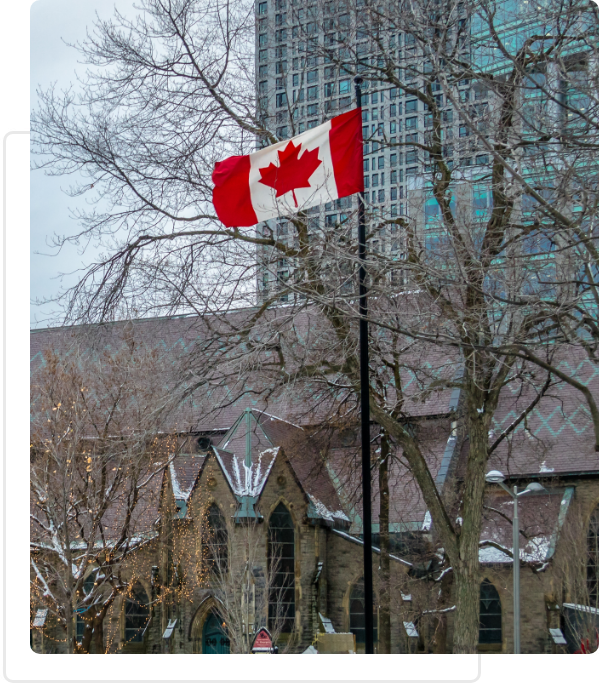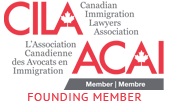
Are you looking to immigrate to Canada? Secure Canadian Residency with PNP
The Provincial Nominee Program (PNP) is a pathway for skilled individuals to obtain Canadian permanent residency by meeting the specific needs of provinces and territories. Each province has its own streams and eligibility criteria tailored to the economic demands of the region.
Whether you’re applying through the Ontario Immigrant Nominee Program (OINP), British Columbia’s BC PNP, or other provincial streams, navigating the PNP process can be complex. That’s where Kurzfeld Law Firm comes in.
With over 20 years of experience, our team of expert immigration lawyers is dedicated to helping clients successfully apply to the PNP and meet all requirements for permanent residency. From initial consultation to the completion of your immigration process, we provide personalized, hands-on support every step of the way.
Provinces & Territories Currently Running PNPs
- Ontario
- British Columbia
- Alberta
- Saskatchewan
- Manitoba
- New Brunswick
- Nova Scotia
- Prince Edward Island
- Newfoundland and Labrador
- Northwest Territories

What is a Provincial Nominee Program?
Every person wanting to remain in Canada as a permanent resident must meet some criteria under some programs. There are three principal streams by which one can qualify for PR, one of which is the PNP. An individual getting nominated under PNP enables the province and territory to choose the candidate from the marked Skilled Worker, Entrepreneur, or International Graduate list to move to Canada. These individuals can move based on work, education, or business. A PNP enables the applicant to make a significant economic contribution to their province or territory.
How do you apply for a PNP in Ontario?
Applying for the Ontario Immigrant Nominee Program (OINP) involves several steps:
- Determine Eligibility: Check the details of the different OINP streams. Read through and understand the details to select a stream to apply for. Consider factors such as education and job experience while applying for a scheme.
- Create an Express Entry Profile: Individuals applying under the Express Entry system must create a profile on the Express Entry portal stating their reason for seeking PR in Canada.
- Submit an Expression of Interest (EOI): Individuals choosing a category other than Express Entry must e-file an EOI on the OINP online portal.
- Receive a Notification of Interest (NOI): If the application is accepted, you will be sent a NOI.
- Apply to the OINP: The application for OINP should support valid documentation, which includes proof of work experience, education, language proficiency, and finances.
- Receive a Provincial Nomination: If the application is successful, you will be nominated for permanent residency.
- Apply for Permanent Residence: Complete the final step by filling out the federal application per the nomination certificate received from the IRCC.
What are the Eligibility Criteria for Getting a Work Permit?
To obtain a Canadian work permit, the applicant must first have a valid job offer from a Canadian employer. In addition to this, several key eligibility criteria must be met, including:
-
Education and Skills: Relevant qualifications and experience for the offered position.
-
Work Experience: Demonstrated ability to perform the job based on past work history.
-
Financial Support: Proof of sufficient funds to support yourself (and any accompanying family members) during your stay in Canada.
-
Medical Clearance: A clean bill of health if required by Immigration, Refugees and Citizenship Canada (IRCC).
-
Police Clearance: No criminal record or security concerns.
The application process and additional requirements may vary depending on the applicant’s country of origin, the type of work permit being requested (open or employer-specific), and whether a Labour Market Impact Assessment (LMIA) is involved.
Can Provincial Nominees Move to a Different Province in Canada?
Provincial Nominee Program (PNP) candidates are selected based on their intention to live and work in the nominating province. This intent is a critical part of the nomination process, as provinces nominate candidates to meet local labor and economic needs.
However, once a nominee becomes a permanent resident of Canada, the Canadian Charter of Rights and Freedoms allows them the freedom to live and work anywhere in the country. While there are no legal restrictions on moving to another province, doing so immediately after landing may raise questions about the applicant’s original intent and could affect future immigration applications or sponsorships.
Therefore, while relocation is legally permitted after becoming a permanent resident, it is advisable to honor your initial commitment to the nominating province for a reasonable period before moving.
Role of Canadian Immigration Lawyer in a Provincial Nominee Program
Applying for a Provincial Nominee Program (PNP) can be complex, and while it’s possible to apply independently, even small mistakes can lead to delays, rejections, or repeated paperwork. Working with an experienced Canadian immigration lawyer Toronto helps ensure that your application is accurate, complete, and submitted under the most appropriate PNP stream for your qualifications and goals.
An immigration lawyer will:
-
Assess your eligibility across various PNP streams
-
Help you choose the most suitable provincial program
-
Complete and review your application for accuracy and completeness
-
Ensure your submission meets the program’s standards and documentation requirements
-
Represent you legally if complications arise during the process
Having legal guidance significantly improves your chances of being successfully nominated for permanent residence through a PNP. It provides peace of mind, knowing that your application is being handled with professional care and attention to detail.
Provincial Nominee Programs by Province
| Ontario | Ontario Immigrant Nominee Program (OINP) |
| British Columbia | BC Provincial Nominee Program (BC PNP) |
| Alberta | Alberta Immigrant Nominee Program (AINP) |
| Saskatchewan | Saskatchewan Immigrant Nominee Program (SINP) |
| Manitoba | Manitoba Provincial Nominee Program (MPNP) |
| New Brunswick | New Brunswick Skilled Worker Stream |
| Nova Scotia | Nova Scotia Nominee Program (NSNP) |
| Prince Edward Island | Prince Edward Island Provincial Nominee Program (PEI PNP) |
| Newfoundland and Labrador | Newfoundland and Labrador Provincial Nominee Program (NL PNP) or Atlantic Immigration Program (AIP) |
| Northwest Territories | Northwest Territories Nominee Program (NTNP) |




